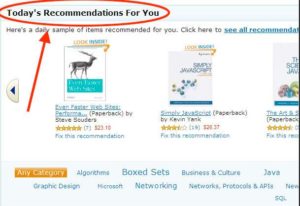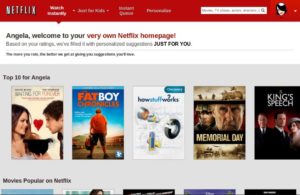This blog is by no means the first time I have discussed the future of content, which given my teenage obsession with dystopian fantasies is hardly surprising – the future is a worrying/exciting/exhilarating/breath-taking/angst-inducing concept. However, it will be the first time I admit with complete certainty that whilst there is no doubt that personalised content will be the future of marketing, no-one – not even the experts really know how far this will go. As exceptionally smart people continue to develop the sort of algorithms that make your head spin and irrevocably affect the world of commerce, we (not even, I, a humble content marketer) know how a decade from now this will look.
However, given that 68% of carts are abandoned before a purchase is even made and that the average individual’s attention span is equivalent to that of your household goldfish. It would seem that personalised content will need to become even more nuanced, even more refined as shops fight for their customers. So the question is, what is personalised content and who is using it?
Now, a lot of people confuse personalised content with content segmentation. Content segmentation is when you differentiate your content according to the location, gender, age etc. of your consumers. This is a relatively simple process and is available, affordable and accessible through levels of platforms like Facebook and Mail chimp (as an aside for anyone in the B2C arena who isn’t using Facebook ads to their fullest – Facebook’s algorithms are incredibly strong so I would highly recommend getting on that bad boy). However, content personalisation is what you see frequently on the ‘big boys’ of the online world -namely Netflix, Amazon and Facebook.
Every single individual visiting Amazon will view a different home page based on their previous buys, preview views and a whole host of other big data it collects as you innocently surf the web. Not only that, but it is also thought that the ‘response to buying suggestions’ that Amazon offers generates an additional 10% – 30% of its revenue in business. Amazon are quite possibly the best example of content personalisation because even as the CEO, Marissa Mayer, quite rightly points out that the technology is a “few years away,” Amazon are harnessing the limited technology we currently have for maximum effect.

Worth a mention, but not quite up to Amazon’s standards are Netflix – who will recommend programming based on previously watched shows and movies. However, the impact here is limited because even if you rate the show a paltry 1 or 2 out of 5, you will still receive recommendations on a film or TV show you didn’t like.

Meanwhile, Facebook and their world domination continues as adverts continually pop up based on searches you have made on separate sites (worrying) and each item on your news feed is based on your previous likes, searches, review etc. However, there is no personal touch à la Amazon or Netflix. Frankly, I wouldn’t mind a personal message from Mark Zuckerberg himself, but I doubt content personalisation will ever get quite that far.
There are, of course, a number of tools available online for those companies who do not quite have the gargantuan power or wealth of Amazon, Netflix and Facebook. These include: Personyze, Marketizator, Monoloop & Monetate. Now, I haven’t used these tools, but I am going to take an educated guess and assume that the technology probably isn’t quite there. However, they could certainly act as a starting point.
Whilst we are waiting for content personalisation to reach its peak; if you need any help with some good ol’ fashioned content marketing, content optimised SEO or a content marketing strategy feel free to give me a call on helena@helenabaker.com or drop me a line on 07826 857 882.

